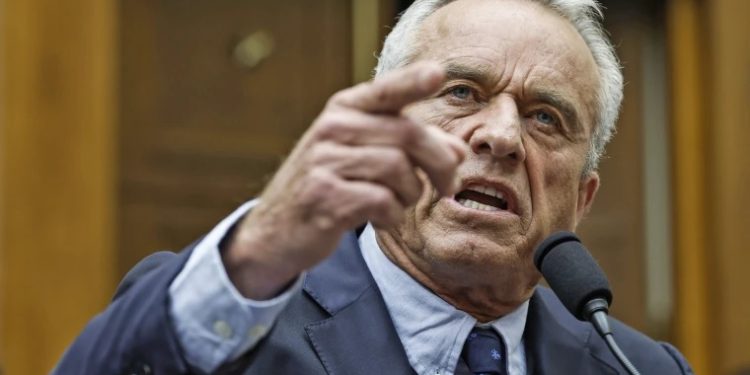A federal magistrate judge, Nathanael Cousins, has scheduled an emergency hearing for Wednesday regarding a lawsuit filed by Democratic presidential candidate Robert F. Kennedy, Jr. The lawsuit accuses YouTube, owned by Google, of censoring Kennedy’s campaign content.
The hearing will consider Kennedy’s request for a temporary restraining order against Google, aiming to prevent the alleged censorship of his speech on YouTube throughout his 2024 presidential run. The hearing is set for 11 a.m. local time at the federal courthouse in San Jose, California.
Kennedy’s complaint was filed in the U.S. District Court Northern District of California against Google and its subsidiary YouTube. The lawsuit asserts that Google collaborated with the federal government to create and enforce “misinformation” policies that censor political opponents, including Kennedy.
These actions, according to the complaint, infringe upon the First Amendment, particularly when they stem from a public-private partnership aligned with government censorship goals.
The lawsuit highlights Kennedy’s discussions on topics often overlooked, such as the adverse health effects of toxic chemicals and concerns surrounding COVID-19 vaccines. YouTube reportedly removes videos of Kennedy’s remarks, frequently citing “medical misinformation” policies to justify the removals.
The lawsuit claims that YouTube has employed these policies multiple times to censor Kennedy’s speeches and interviews during his 2024 presidential campaign, often based on guidance from the Biden administration.
Scott Street, the lead attorney in the litigation, expressed gratitude for the expedited hearing, asserting that society stands to lose if censorship continues, though Google wouldn’t be harmed by refraining from censoring Kennedy’s campaign content.
Kennedy’s campaign emphasizes YouTube’s role as a vital platform for political discourse and expresses concern over alleged censorship of viewpoints opposing government narratives. The campaign asserts that Kennedy’s case is unique as it seeks an order against Google itself, distinguishing it from similar cases.
Google has denied any wrongdoing, maintaining that YouTube enforces its Community Guidelines impartially and consistently, regardless of political stance. José Castañeda, a Google spokesperson, dismissed the allegations as meritless and expressed anticipation in refuting them.
 Telegram is where we really talk. Don't miss out!
Telegram is where we really talk. Don't miss out!







